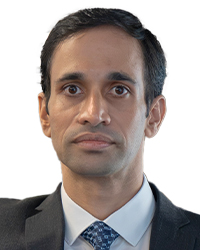Vehicle emissions have become a global concern, causing automobile manufacturers to migrate from internal combustion engined-vehicles to electric vehicles (EV). India, the third-largest automotive market globally, is expecting a large disruption in the EV space. The government has rolled out many initiatives to promote EVs, including the introduction of Faster Adoption and Manufacturing of EVs or FAME, production-linked incentive (PLI) schemes and the electric mobility promotion scheme.
To attract global EV players to set up manufacturing facilities and provide access to global EV technology, the government in March 2024 launched the Scheme to Promote Manufacturing of Electric Passenger Cars in India (promotion scheme). To be eligible, an applicant must be an entity incorporated in India, engaged in automotive or manufacturing activities and have annual global group revenues from the specified activities of no less than INR100 billion (USD1.2 billion). It must also have global investments in fixed assets of at least INR30 billion a year.

Partner
Bharucha & Partners
The scheme requires a minimum investment of INR41.5 billion to set up manufacturing facilities for the production of electric four-wheelers (e-4W). Production infrastructure must become operational within three years.
Vehicles imported as completely built-in units will pay a reduced customs duty of 15%. However, vehicles with a cost, insurance and freight value of USD35,000 or above may be imported for a period of five years, paying a reduced customs duty of 15%. A maximum of 8,000 e-4Ws can be imported annually at the reduced duty rate of 15% although unused annual import limits can be carried over.
The maximum number of EVs that can be imported under the scheme will be determined by the total duty foregone, subject to a maximum of INR64.84 billion or the amount invested, whichever is lower. The limit of INR64.84 billion is the same amount as the benefit under the PLI scheme.
The applicant’s investment commitments must be backed by a bank guarantee from a scheduled commercial bank in India, equivalent to the total duty to be forgone or INR41.5 billion, whichever is higher.
The initiatives launched so far have focused on boosting demand and supply for EVs by means of offering subsidies based on the battery capacity installed in vehicles, with higher incentives given in cases such as vehicles used for public transport. These demand incentives were aimed at lowering acquisition prices and thereby boosting the demand for and production of EVs. Additionally, FAME sought to bolster EV adoption through initiatives for charging infrastructure development and advancing research and development in the electric mobility sector. These initiatives have helped India’s EV players in terms of such factors as increased production capacities, the development and launch of new products and improvements in EV technologies. The scheme, by inviting global players, is a further attempt to boost EV supply, technology and innovation.
It should be noted the promotion scheme applies only to e-4Ws. Exisiting government initiatives cover electric two-wheelers (e-2W) and electric three-wheelers (e-3Ws). The government also launched the Electric Mobility Promotion Scheme, 2024 (EMPS) on 13 March 2024 as the successor to FAME II. The EMPS makes e-2Ws and e-3Ws eligible for demand incentives and lays down a phased manufacturing programme.
EVs are increasingly popular for being eco-friendly, low maintenance and cost-effective. India aims to become an EV manufacturing hub, leading the transition from traditional vehicles. Major players such as Tesla, Rivian and LEAP Motors have been closely monitoring the Indian EV market. However, high import duties, in some cases up to 100%, have been major deterrents to international companies competing with established Indian players. Through the promotionscheme, India is ambitiously positioning itself as a manufacturing powerhouse for EVs, spearheading the shift away from traditional vehicles.
A Niti Aayog report in May 2022 forecast that by 2030 Indian EV penetration was expected to be around 10% for private four-wheelers and up to some 40% in the case of two-wheelers. The scheme is a major policy change designed to attract global EV entities. This should soon put more internationally branded e-4Ws onto the roads of India.
Parag Bhide is a partner and Vanshika Deora is an associate at Bharucha & Partners.

Mumbai
13th Floor, Free Press House
Free Press Journal Marg
Nariman Point
Mumbai 400 021. India
Contact details:
T: +91 22 2289 9300
F: +91 22 2282 3900


























